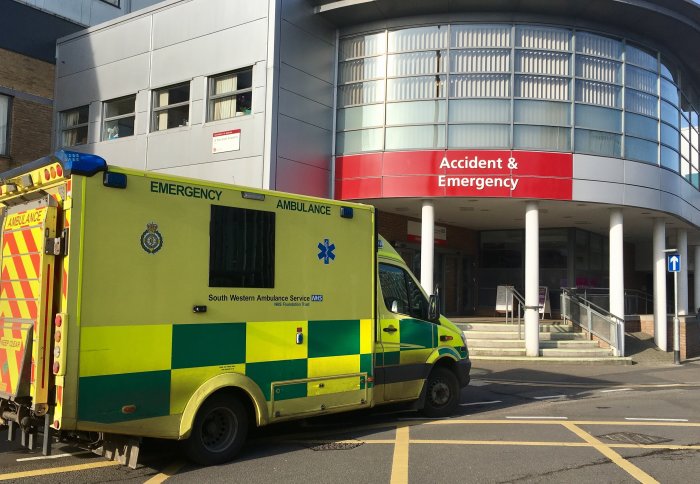Lord Darzi report calls for ‘radical simplification’ to make NHS fit for 2020s
by Ryan O'Hare

A leading Imperial academic and surgeon has called for a raft of actions needed to “ensure that the NHS is fit” for the decade ahead.
In the final 'Lord Darzi review of Healthcare' report, published by the Institute for Public Policy Research (IPPR), Professor the Lord Darzi of Denham from Imperial’s Department of Surgery & Cancer sets out a number of key reforms needed to maintain the health service.
The findings, which call for improved access to social care, ensuring funding for the NHS, and the need to simplify and join up the overcomplex structure of the NHS, come just weeks ahead of a landmark anniversary for the health service which marks 70 years since its founding in 1948.
“We need bold action to ensure that the NHS is fit for the 2020s” Professor the Lord Darzi of Denham
Among the findings, Lord Darzi and and Lord David Prior, Chair of UCL Hospital and former Conservative health minister, call for free social care for those with ‘critical’ or ‘substantial’ care needs.
The report proposes to eradicate means testing, which puts many at risk of facing personal bills of £100,000 or more.
It highlights that the NHS spends £3bn a year caring for patients who could be discharged, which could be reduced by providing free social care.
The reforms would require annual spending on social care to double, from its current level of around £17bn to £36bn, by 2030, which could be paid for with a 1p increase on National Insurance Contributions (NICs) for employers, employees and the self-employed.
Radical restructure
In addition, the report highlights the need to ‘dramatically streamline’ the NHS, and roll back some of the Lansley reforms which changed the service in 2012. Lord Darzi and Lord Prior call for a “radical simplification” of the NHS to better join up different parts of the system.
Among the changes, they propose the creation of at most 10 new Health and Care Authorities (HCAs) to replace 244 commissioning bodies and other organisations. The newly created HCAs would act as “strategic commissioners” with powers to drive integration and reform, set local priorities and ensure national standards are met.

Discussing funding issues, the report calls for a long-term settlement which guarantees that NHS funding will grow at its rate of 1.5 per cent more than the UK’s rate of economic growth. This would deliver real terms growth of around 3.5 per cent a year over the next decade.
The proposed increase to National Insurance Contributions would pay for the extra NHS and social care spending during the current parliament. Beyond 2022 they recommend creating an independent body to recommend future tax rises to meet future funding requirements.
'Bold action' needed
Lord Darzi, Director of the Institute of Global Health Innovation at Imperial and a former Labour health minister, said: “The NHS and social care have done well to improve or maintain quality over the last decade. But the cracks are now showing. We need bold action to ensure that the NHS is fit for the 2020s.
“We must demand that we do care differently by embracing new technologies and empowering people to live healthier lives. This will mean caring as much about social care and public health as the NHS and embracing reform as much as additional funding. The gift the NHS needs on its 70th birthday is a pragmatic plan to secure it for future generations.”
Lord Prior, Chairman of UCL Hospital and former Conservative Health and Business Minister, said: “Simply putting more money into the NHS and hoping for the best will not work. With funding must come radical reform. We need a shift from ‘diagnose and treat’ to ‘predict and prevent’. Care must be joined up around - and tailored to - the patient.
“A universal service should be there for everyone, not the same for everyone. At the heart of our plan for reform is a radical simplification of the NHS and a properly funded social care system to make this happen.”
The full report ‘The Lord Darzi Review of Health and Care’ is available online.
Article text (excluding photos or graphics) © Imperial College London.
Photos and graphics subject to third party copyright used with permission or © Imperial College London.
Reporter
Ryan O'Hare
Communications Division